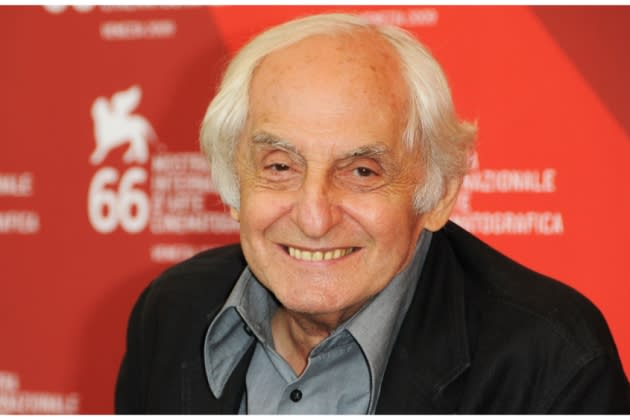Francesco Maselli, Influential Italian Auteur, Dies at 92

Influential Italian auteur Francesco “Citto” Maselli who worked with Lucia Bosé, Claudia Cardinale, Shelley Winters and Valeria Golino on films that combined his political passion with his bent for female-centered dramas, has died in Rome.
Maselli, who was known for making left-wing militant cinema, was 92.
More from Variety
Italy's Most Wanted Mafia Boss Set For High-End Movie Following Arrest After 30 Years on the Run
Andrew Freedman, Veteran News and Entertainment Publicist, Dies at 67
Italy's Minerva Takes World Sales of 'Dante' Biopic Toplining Sergio Castellitto (EXCLUSIVE)
The director’s death was announced to Italian news agency ANSA by Maurizio Acerbo, leader of Italy’s small Communist Refoundation Party, the group of die-hard Italian leftists that Maselli championed, and confirmed by the director’s wife. The exact cause of Maselli’s death was not revealed.
Born into a cultured family originally from Italy’s Southern Molise region and raised in an intellectually stimulating environment – his father was an art critic – Maselli participated at a very early age in Italy’s partisan Resistance movement against fascists and German occupiers and as a young man started asserting his belief in Communism.
After graduating from Rome’s Centro Sperimentale di Cinematografia and working as an assistant to Michelangelo Antonioni, Maselli made his feature film debut with World War II drama “Gli Sbandati” (“Abandoned”), featuring Lucia Bosé, which premiered at the Venice Film Festival in 1955.
Followed “La Donna del Giorno” (“The Doll Who Took the Town”) with Virna Lisi in 1957, and “I Delfini” (“The Silver Spoon Set”), a psychological and social portrayal of a group of well-off young adults in the Italian provinces starring Claudia Cardinale in 1960. Both were neorealist critical portraits of Italian society at the time.
In 1964 he directed “Gli Indifferenti” (“Time of Indifference”), adapted from Alberto Moravia’s eponymous novel about members of an upper-crust Rome family reacting to a financial crisis that is undermining their social status and starring Paulette Godard, Claudia Cardinale, Rod Steiger and Shelley Winters.
Maselli’s work during the 1970s become more blatantly political with films such as the semi-autobiographical “Open Letter to the Evening News” (1970), about a group of left-wing intellectuals who found an international brigade of pro-Vietnam fighters, or “The Suspect” (1975), the story of a worker and member of the Italian Communist Party who is charged by the party’s Central Committee with finding and exposing a secret police spy within their ranks.
In the 1980s and early 1990s, Maselli shifted to more intimate films, mainly portraits of women, including “A Tale of Love” (1985), starring Valeria Golino, which won the Venice Film Festival’s Gran Jury prize, and “The Secret” (1990), which went to Berlin, and “Dawn” (1991) both toplining Nastasja Kinski.
The director’s final film is “Le Ombre Rosse” (“The Red Shadows”) about a world-renowned leftist intellectual who comes to Rome to set up a centre for social activism called “Change the World” in an old movie theatre. “Red Shadows” launched from the Venice Film Festival which also paid tribute to Maselli in 2021.
Maselli is survived by his wife Stefania Brai, a journalist and head of the Communist Refoundation Party’s cultural activities department.
Best of Variety
Sign up for Variety’s Newsletter. For the latest news, follow us on Facebook, Twitter, and Instagram.
